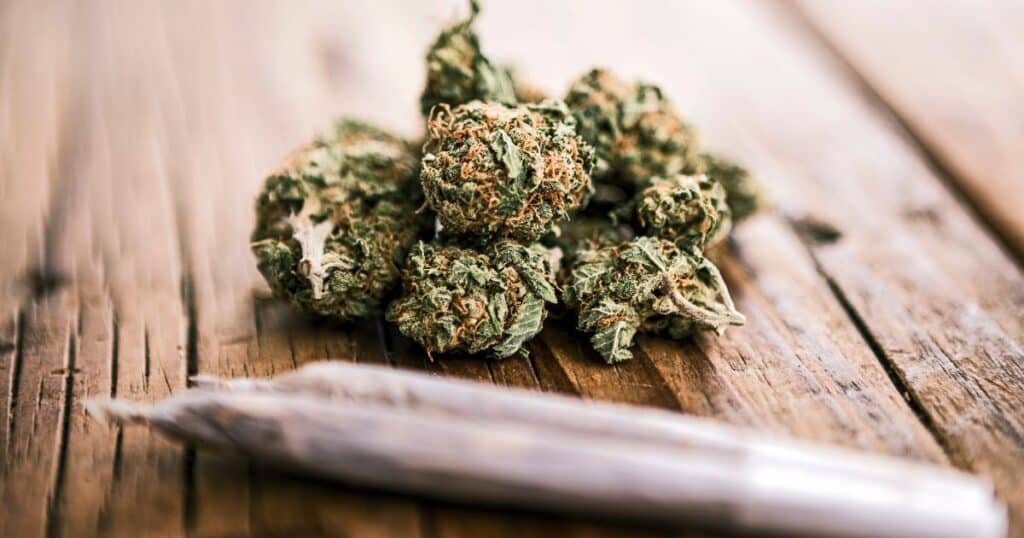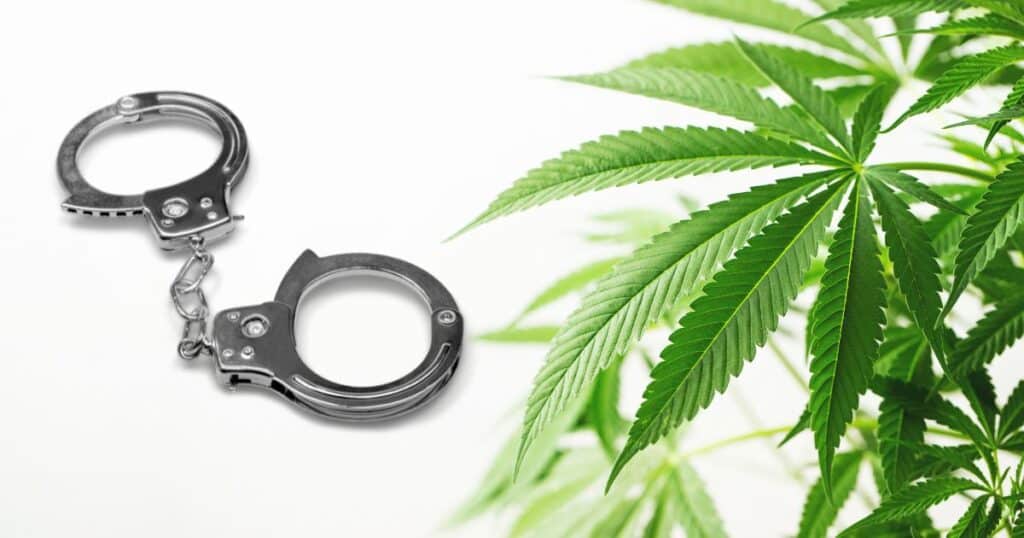With the recent legalization of marijuana for adults 21+ in Ohio, the U.S. Drug Enforcement Agency (DEA) has said that it will not rule out arrests for marijuana use despite this state legalization. Many residents new to the cannabis landscape often find themselves puzzled by its legality. How is it possible for something to be legal at the state level while still being subject to federal enforcement? Let’s take a look into this complex issue and explore its implications for cannabis users, particularly within Ohio’s growing cannabis community.

The Federal vs. State Legalization Dilemma
Ohio is the latest state to legalize marijuana for recreational use and sales starting earlier this month. However, despite state-level legalization, marijuana remains illegal under federal law as it currently stands. In a recent article by WOSU Public Media, the DEA has made it clear that they retain the authority to arrest individuals for marijuana possession, regardless of state-level regulations.
This is rooted in the fact that marijuana is classified as a Schedule I drug under the Controlled Substances Act (CSA), placing it in the same category as substances like LSD and heroin. This classification indicates that the federal government views marijuana as having a high potential for abuse and no accepted medical use despite mounting evidence to the contrary.
A shift to reclassify marijuana from Schedule I to Schedule III is currently underway following the conclusion of the DOJ’s public comment period last month. Furthermore, a group of lawmakers are also pursuing an initiative called the Cannabis Administration and Opportunity Act (CAOA) to altogether remove marijuana from the Controlled Substances Act (CSA).
DEA’s Stance on Marijuana Arrests
The U.S. Drug Enforcement Agency informed WOSU via DEA Detriot Divison Spokesmen Brian McNeal that its primary goal is to apprehend and prosecute major drug traffickers the “big fish”, but it has not dismissed the possibility of arresting individuals who are smoking marijuana in accordance with Ohio law, which it typically leaves the lesser crimes for local authorities.
“So are we necessarily after the kid with an ounce of weed for that kid or for that group of people? We want to provide information and remind that it is still remains of federally illegal substance, and you can be arrested and prosecuted,” McNeal said.
“Can a student be arrested by a federal agent? Whether it’s FBI, DEA, HSI? Yes, but that is not our intent or our goal to arrest users… who might have a substance on their person.”
WOSO also highlights that the DEA’s Detriot Field Office has announced efforts targeting college campuses in Ohio and Michigan, focusing on education and resources rather than enforcement. The DEA says this initiative aims to provide information on the dangers of drug abuse, including the risks associated with synthetic drugs and fake prescription pills.
“What we like to do is provide information, the scare tactics of when when I was a kid, when I would sit down and watch Saturday morning cartoons and the guy would fry an egg and say, this is your brain on drugs. We’ve moved away from that,” he said.
Steps Forwards, But Not Enough
This marks the second important reminder for residents in Ohio regarding the complexities of cannabis legality within the state. Earlier this month, the Cincinnati VA Health Care System issued a statement clarifying that despite the recent legalization of cannabis for recreational use in Ohio, it remains classified as a Schedule I Controlled Substance under federal law, and VA healthcare providers are still unable to recommend or assist veterans in obtaining marijuana.
The legalization of marijuana in Ohio represents a significant shift in drug policy, reflecting changing attitudes toward the substance. However, the conflict between state and federal laws still creates a complex legal landscape for users. The DEA’s stance on marijuana enforcement highlights the ongoing challenges and risks associated with its use, even in states where it is legal.
At Beard Bros Pharms, we believe that while rescheduling is a step forward in normalizing the plant, it is not enough to address these issues. The best move would be to completely remove marijuana from the CSA, ensuring consistent regulation across all states.





















